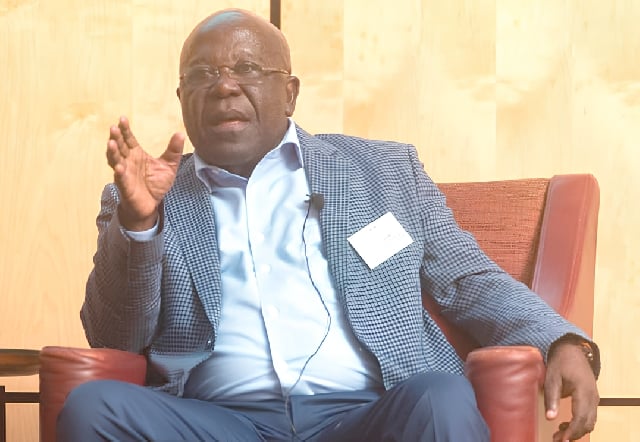In a critical analysis of the state of corruption in Ghana, Sir Samuel Esson Jonah, renowned businessman and Chancellor of the University of Cape Coast, expressed grave concerns over the normalization of corrupt practices within Ghanian society. He observed that corruption has become so pervasive that many individuals now regard it as an inherent aspect of culture, with those who refrain from corrupt practices viewed as anomalies. This troubling acceptance of corruption indicates a troubling cultural shift, where ethical behavior is not only undervalued but also associated with inexperience in business dealings, creating a landscape where dishonest practices are seen as necessary for success.
In the corporate environment, Jonah lamented that the prioritization of profit often overshadows ethical conduct, leading to a detrimental cycle where companies and individuals resort to corrupt means for competitive advantage. This normalization of unethical behavior does not just affect business transactions; it permeates the very fabric of governance and public trust. During his address at the Graphic National Development Series, Jonah linked this culture of corruption to a broader decay in governance, lamenting that political leaders are increasingly embroiled in scandals that only serve to erode citizens’ faith in the governing bodies and the principles they were meant to uphold.
The consequences of rampant corruption extend to the legislature, which Jonah pointed out should serve as the ethical backbone of society. When even parliament, a body expected to embody the rule of law and virtue, is plagued by corruption, it deeply undermines public confidence in governance. Jonah noted that the lack of accountability for corrupt officials, especially those connected to executive power, sends a frightening message to the populace about the effectiveness of due process, further embedding cynicism and disillusionment among citizens.
Moreover, Jonah argued that this corruption fosters an emerging culture that emphasizes individual gain over the collective good, which can be traced back to various socio-economic challenges facing Ghana. He maintained that the prioritization of personal interests has direct implications on the nation’s prospects for economic growth, environmental sustainability, and overall civic responsibility. Issues like illegal mining not only contribute to environmental degradation but illustrate a broader neglect for the wellbeing of future generations, reinforcing a cycle of shortsightedness within the society.
The confluence of these issues poses significant threats to national development, as Jonah emphasized that the habits born out of corruption could further entrench Ghana’s struggles with economic decline and loss of national pride. To combat these multifaceted challenges, he called for a re-evaluation of societal norms and an urgent need to return to the principles of integrity, accountability, and public service that once defined the nation’s integrity.
In conclusion, Sir Samuel Esson Jonah’s remarks serve as a sobering reflection on the urgent need for a cultural shift within Ghana towards embracing ethical practices across all sectors. He urged a collective awakening to the realities of corruption and its detrimental effects on governance and society, advocating for reforms that prioritize collective welfare over personal gain. Only through concerted efforts to uphold ethical standards can the country hope to reclaim public trust, stimulate economic growth, and foster a sustainable environment for future generations.


